How to plant daffodil bulbs - ensure a pretty display when spring arrives
Enjoy a beautiful display of daffodils in your garden next spring with this expert advice on how to plant daffodil bulbs
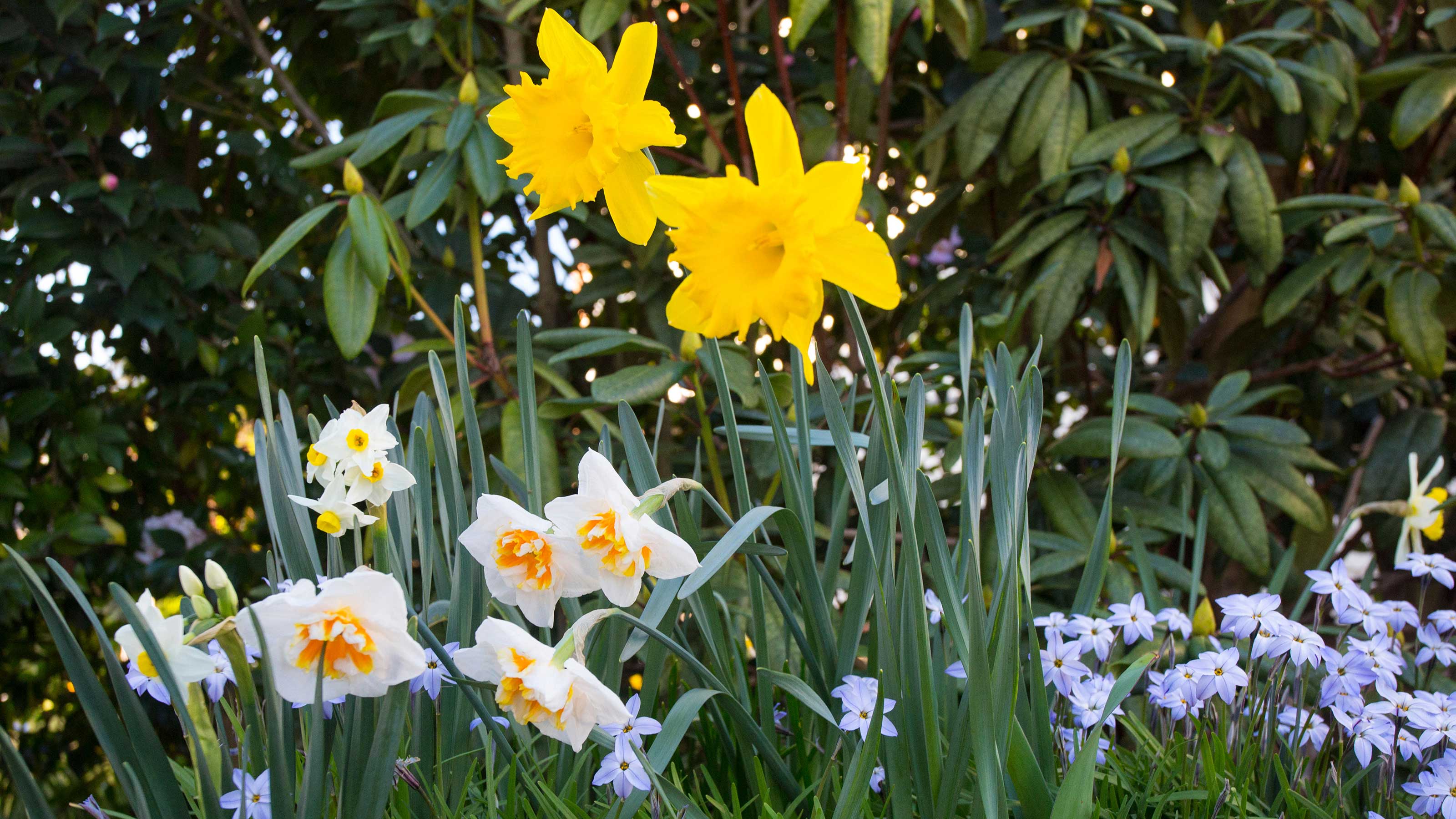

Kayleigh Dray
Available in hues of bright yellow, orange and white, daffodils are renowned for heralding the arrival of spring, so learn how to plant daffodil bulbs and you can enjoy their year-on-year colour.
Autumn is when to plant daffodil bulbs, and these easy-to-grow, hardy perennials are great for beginner gardeners to have a go at and will bring cheery colour to your spring garden as a garden idea.
'Daffodils are a glorious sight in spring, and for new gardeners, they are easy to grow and affordable,' explains Guy Barter, Chief Horticulturalist at the Royal Horticultural Society.
How to plant daffodil bulbs
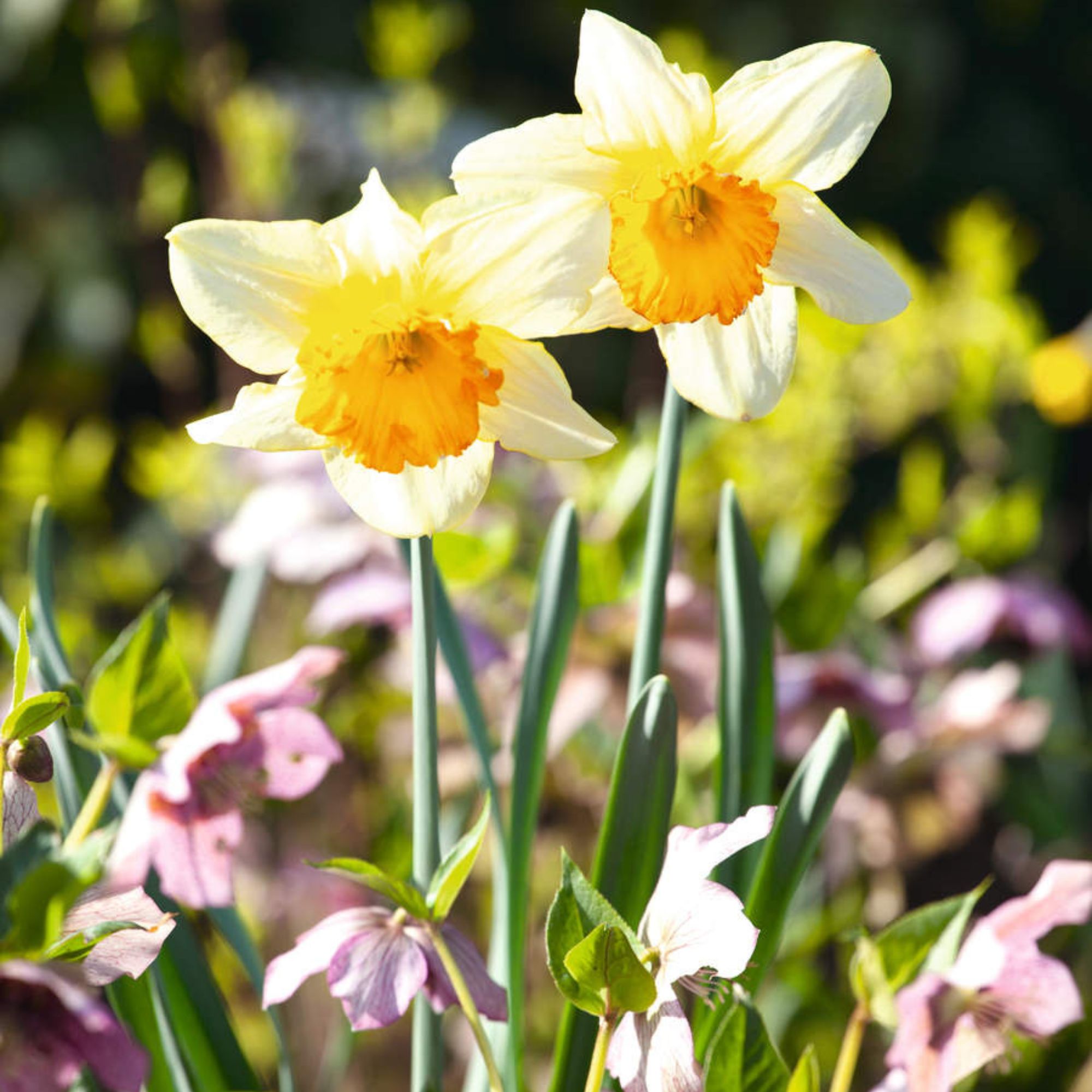
It couldn't be easier to get to grips with how to plant daffodil bulbs – and if you're planting them in containers, they're one of the easiest spring bulbs to grow in pots – but first, make sure you have the necessary equipment to hand. Don't worry, you don't need much!
What you will need
- A hand trowel or bulb planter which you can pick up on Amazon
- Daffodil bulbs – why not try one of the shorter daffodil varieties that have recently received an RHS Award of Garden Merit (AGM), such as Narcissus 'Tête Bouclé' or 'Moonlight Sensation' – with sorter stems they are also great for growing in a container or window box – or learn how to grow paperwhite daffodils as an indoor plant
Step-by-step
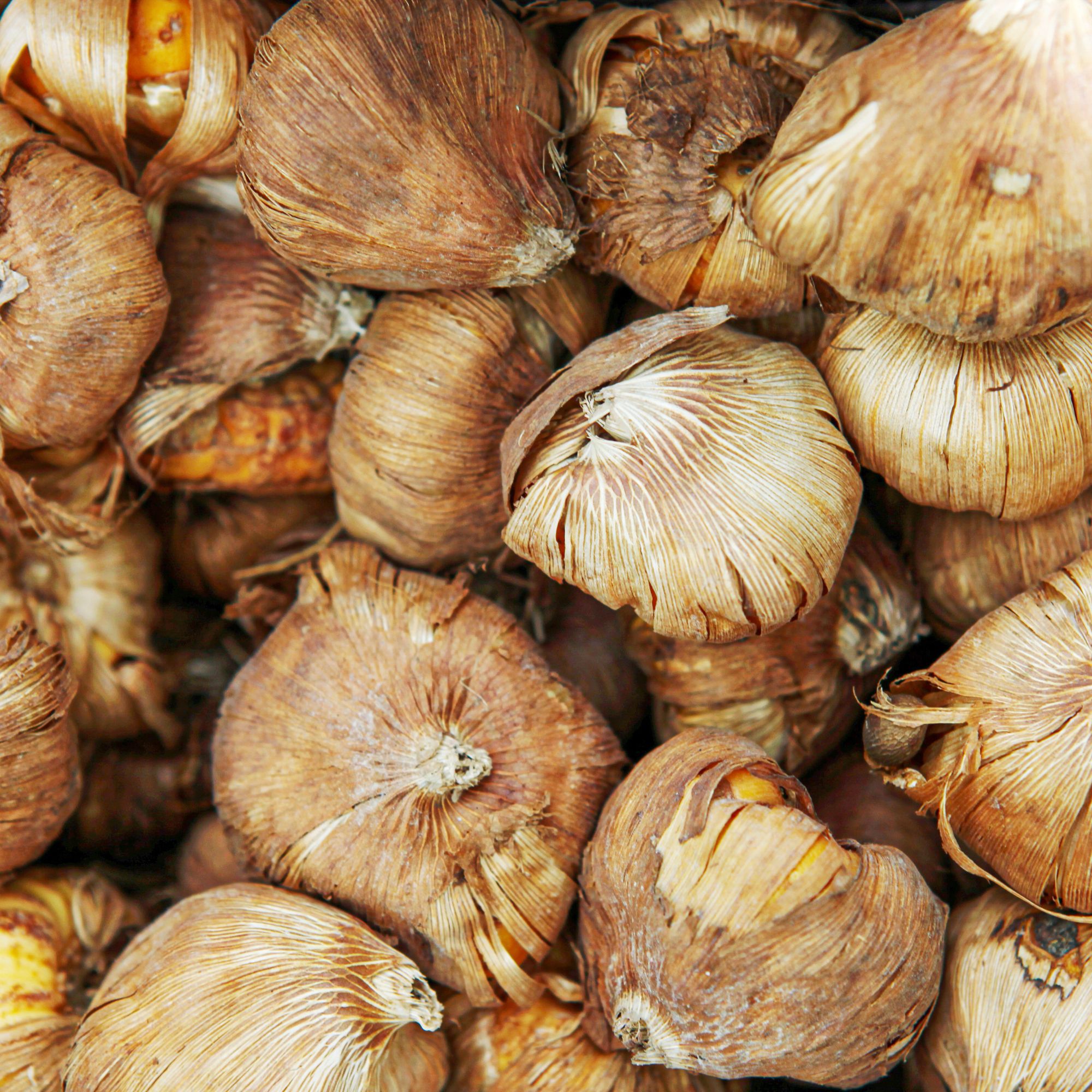
There are many different varieties of daffodil – some that bloom early in February, others as late as May. They also come in a multitude of different colours and heights, so if you choose carefully, you could enjoy a changeable display of daffodil flowers from February through to May.
1.Choose the spot for planting
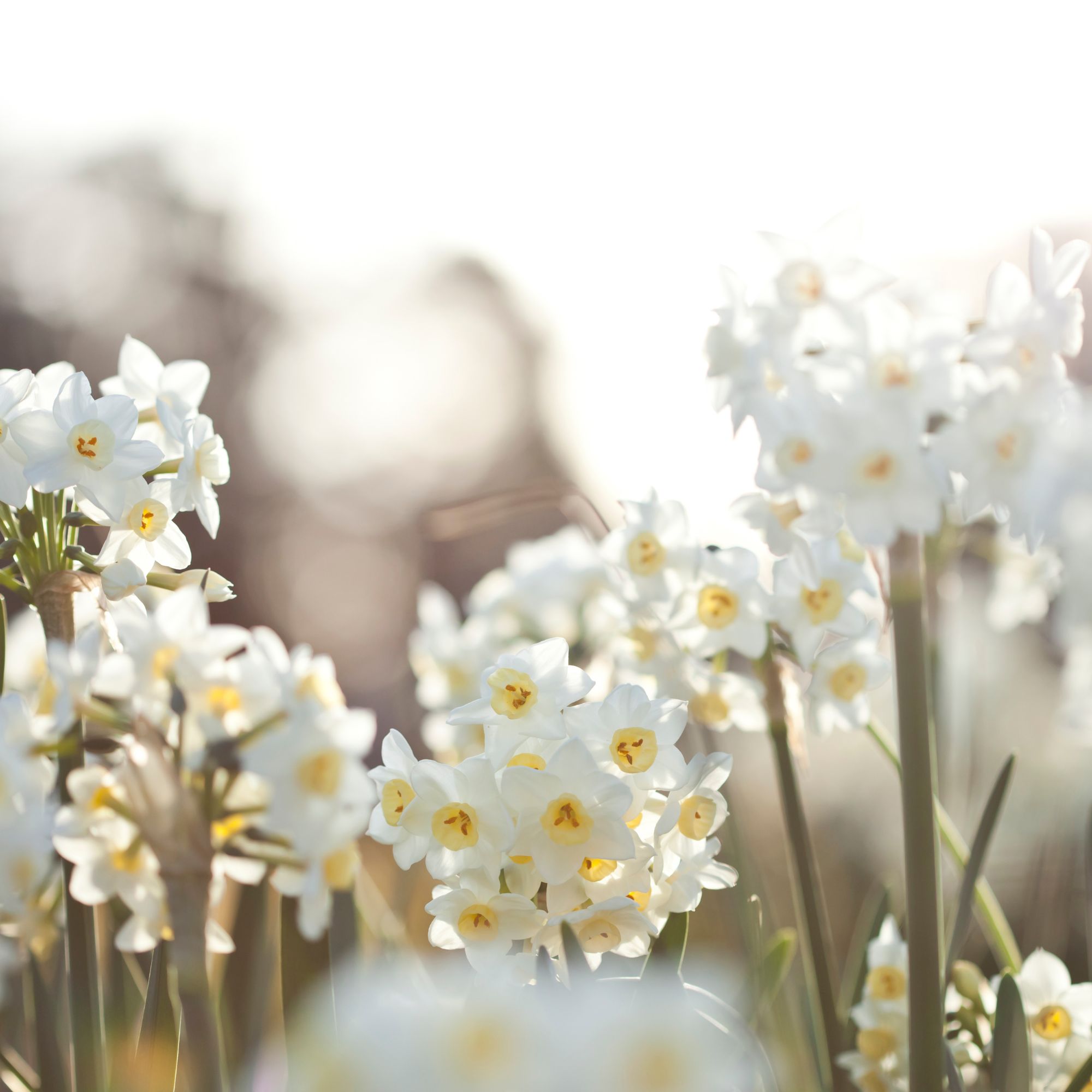
Daffodils are fairly easy to please and can grow in full sun or partial shade, and in light, sandy or heavy clay soil.
'Daffodils don’t like acidic soil, though, so make sure you plant daffodil bulbs where the pH is lower or add lime where needed,' explains Julian Palphramand, head of plants at British Garden Centres.
You're ideally looking for a spot in your garden that's usually warm and sunny in the spring months.
Make sure it has good drainage, too, as you don't want to overwater your daffs; drenching them and letting them sit wet will leave them vulnerable to disease.

Julian is head of plants at British Garden Centres and a font of knowledge on all things related to growing vegetables
2. Loosen the soil
'Prior to planting, make sure you have effectively loosened the soil to alleviate any compactness and incorporate organic matter to enhance both soil structure and drainage,' explains Julian.
3. Dig a hole
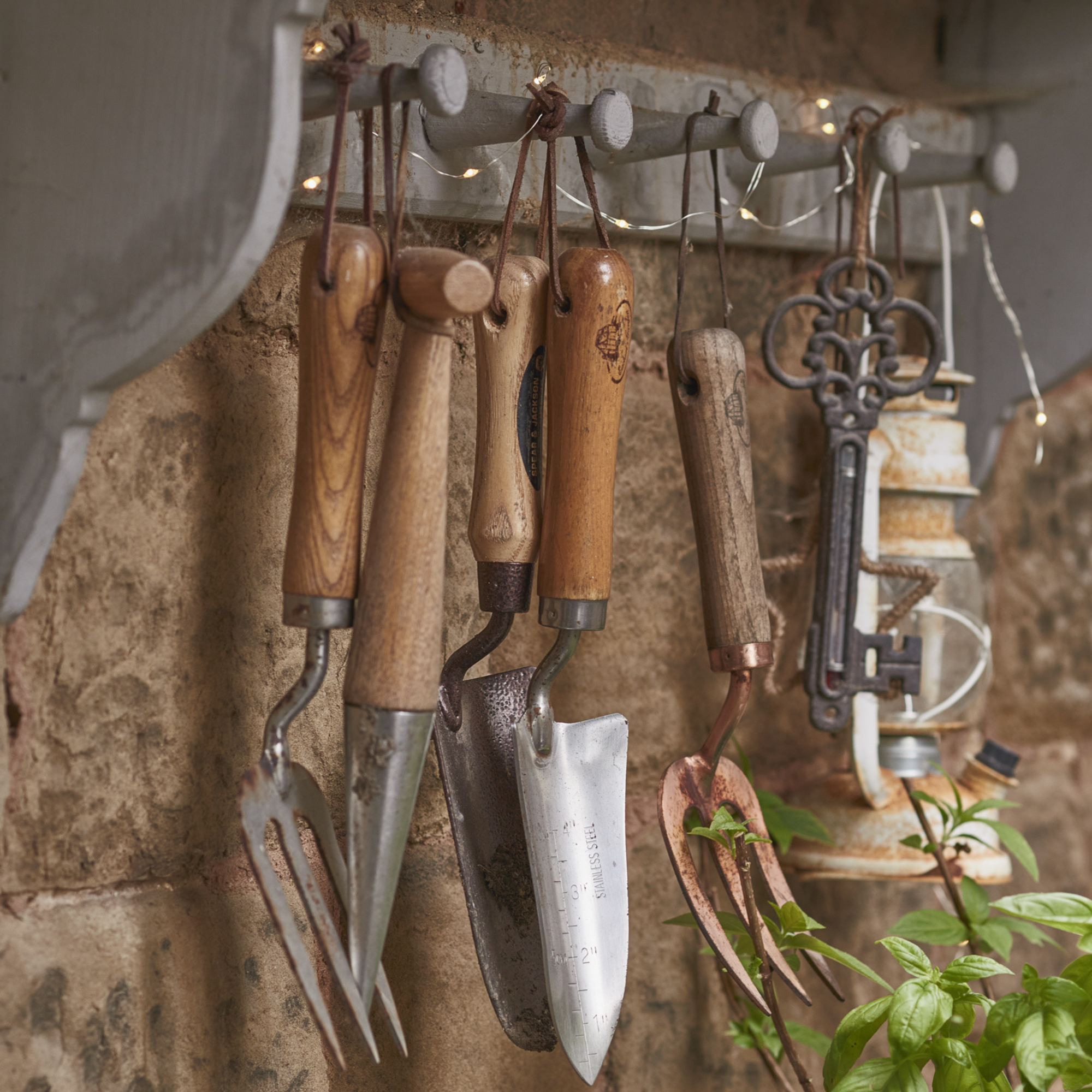
Dig a hole about 15cm (6in) deep. Or, if you prefer, you can 'dig a hole about three times the height of the bulb,' advises Christopher Christopher O'Donoghue of Gardens Revived.

A gardener with over a decade of experience under his belt, Christopher set up Gardens Revived with his brother, Andrew, in 2018 to create a thriving family business. Together, they have worked on residential gardens, listed buildings and gardens, flower shows and large estates with some exceeding 70 acres – many with historical significance.
4. Position the bulbs
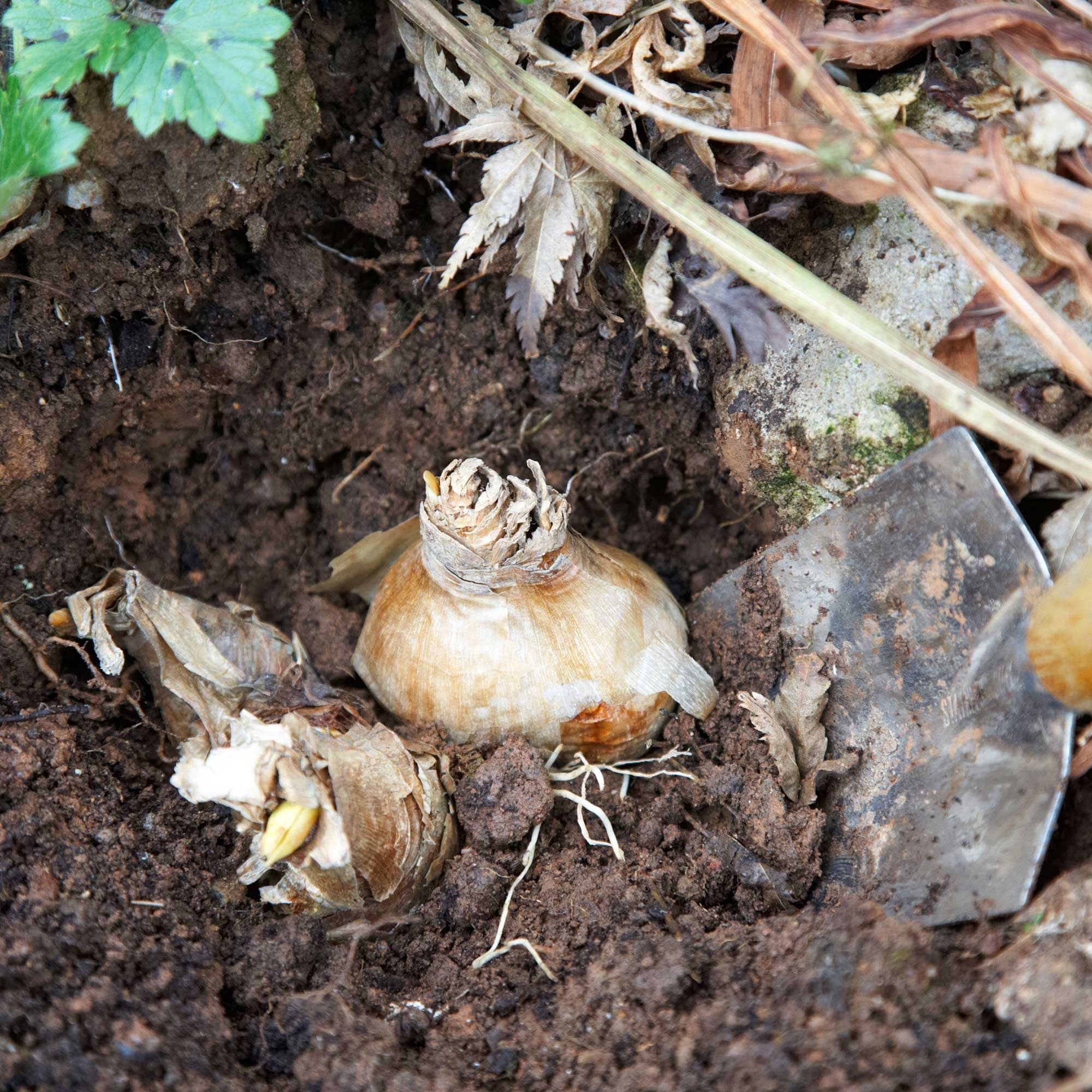
'Position your daffodil bulbs with the pointed end facing upwards. Bury them at a depth three times the size of the bulb, which is approximately 10cm below the soil surface,' says Julian.
Maintain a spacing of approximately 7-15cm between the bulbs, depending on the variety, equivalent to about two bulbs' width.
5. Don't forget to water
Water your daffodil bulbs well to help remove air pockets in the soil and then... that's it. Leave them to their own devices!
'If you want, you can consider adding a layer of mulch over the top to help protect your daffodils from the cold, especially if your garden is usually frosty and dry over the winter months,' says Christopher.
Overall, these should be relatively easy flowers to grow, even for complete novices. And trust us: they may take a little time, but those bright yellow white and orange blooms will be well worth the wait once spring rolls around.
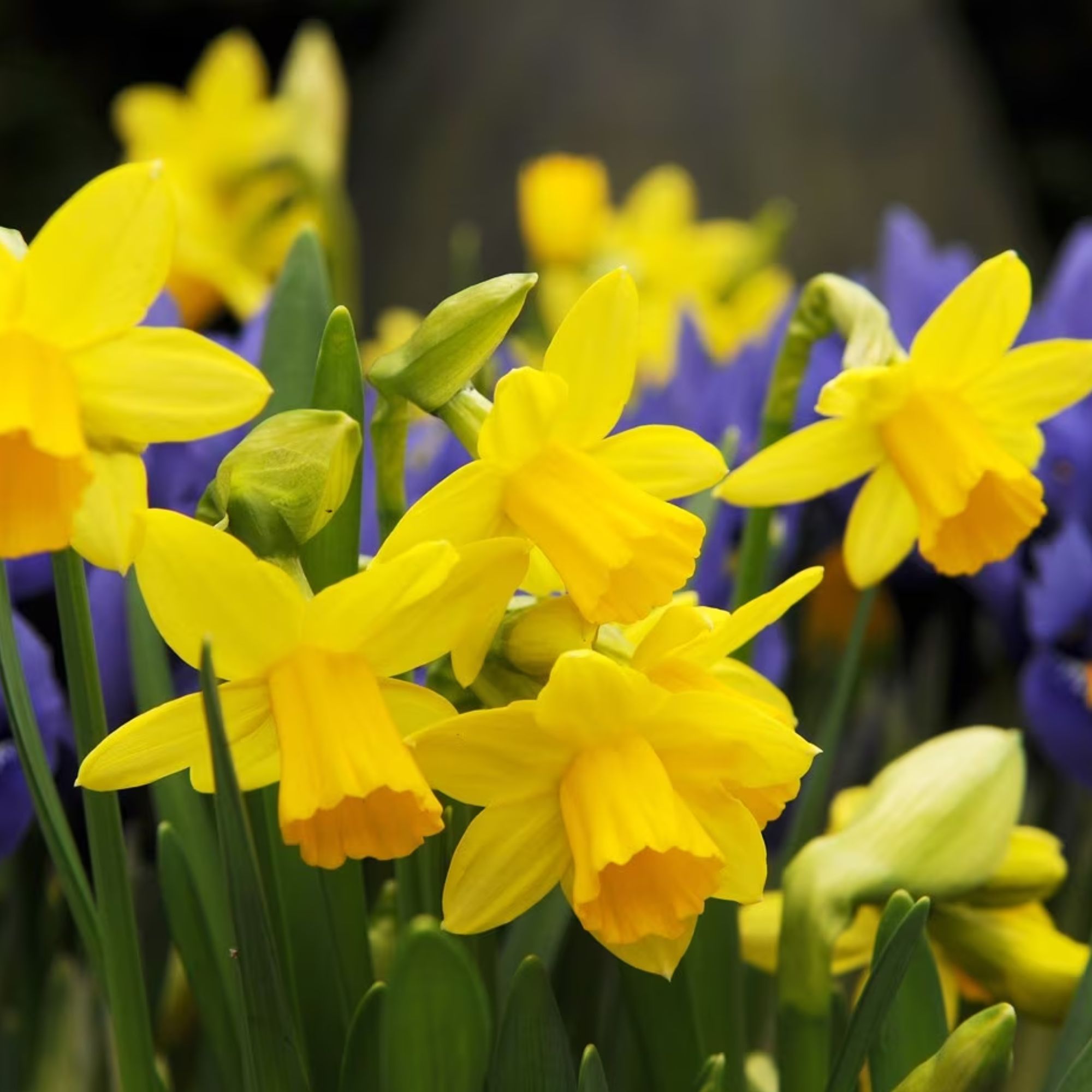
6. Caring for daffodils after flowering
'Once flowering has finished, remove the spent blooms to allow the daffodil bulbs to conserve their energy for the following spring. Use a liquid feed with high potassium content every two weeks from the fading of flowers until the first indications of foliage turning yellow,' advises Julian.
'Trim back the foliage approximately six weeks after the flowers have finished blooming and the leaves have turned yellow. Compact the soil around the plants to create a barrier against bulb flies laying eggs.'
FAQs
What way up do you plant daffodil bulbs?
Always plant daffodil bulbs with the pointed end facing upwards – it should be fairly obvious which is the pointy end but, if in doubt, lay them slightly on their side.
How deep should you plant daffodil bulbs?
Depending on the variety, daffodil bulbs should be planted around 10cm below the soil, or at a depth three times the height of the bulb.
Come spring you should be greeted by glorious and vibrant display.
Get the Ideal Home Newsletter
Sign up to our newsletter for style and decor inspiration, house makeovers, project advice and more.

Rachel Crow is the editor of Period Living Magazine and a senior content editor, contributing homes and garden content for idealhome.co.uk. She has written for lifestyle magazines for many years, with a particular focus on historic houses, interiors, arts and crafts, and gardening. Rachel started her journalism career on BBC radio, before moving into lifestyle magazines as a freelance writer and editor. She worked on The English Home and The English Garden magazines before joining the Period Living team as features editor and then deputy editor. She was garden editor for Homes & Gardens magazine and homesandgardens.com and contributed articles to Country Homes & Interiors.
- Kayleigh DrayActing Content Editor
-
 Will a conservatory add value to your home and how can you maximise it?
Will a conservatory add value to your home and how can you maximise it?This is what the pros say
By Amy Reeves
-
 I’ve been looking for a new signature scent for my home and The White Company's new fragrance is the exact summer holiday smell I needed
I’ve been looking for a new signature scent for my home and The White Company's new fragrance is the exact summer holiday smell I neededSantorini smells fresh, summery and sophisticated
By Kezia Reynolds
-
 How to remove algae from garden walls in five steps – and the cleaning product experts rave about for tackling it fast
How to remove algae from garden walls in five steps – and the cleaning product experts rave about for tackling it fastExperts share their top tips for getting garden walls algae-free
By Katie Sims
-
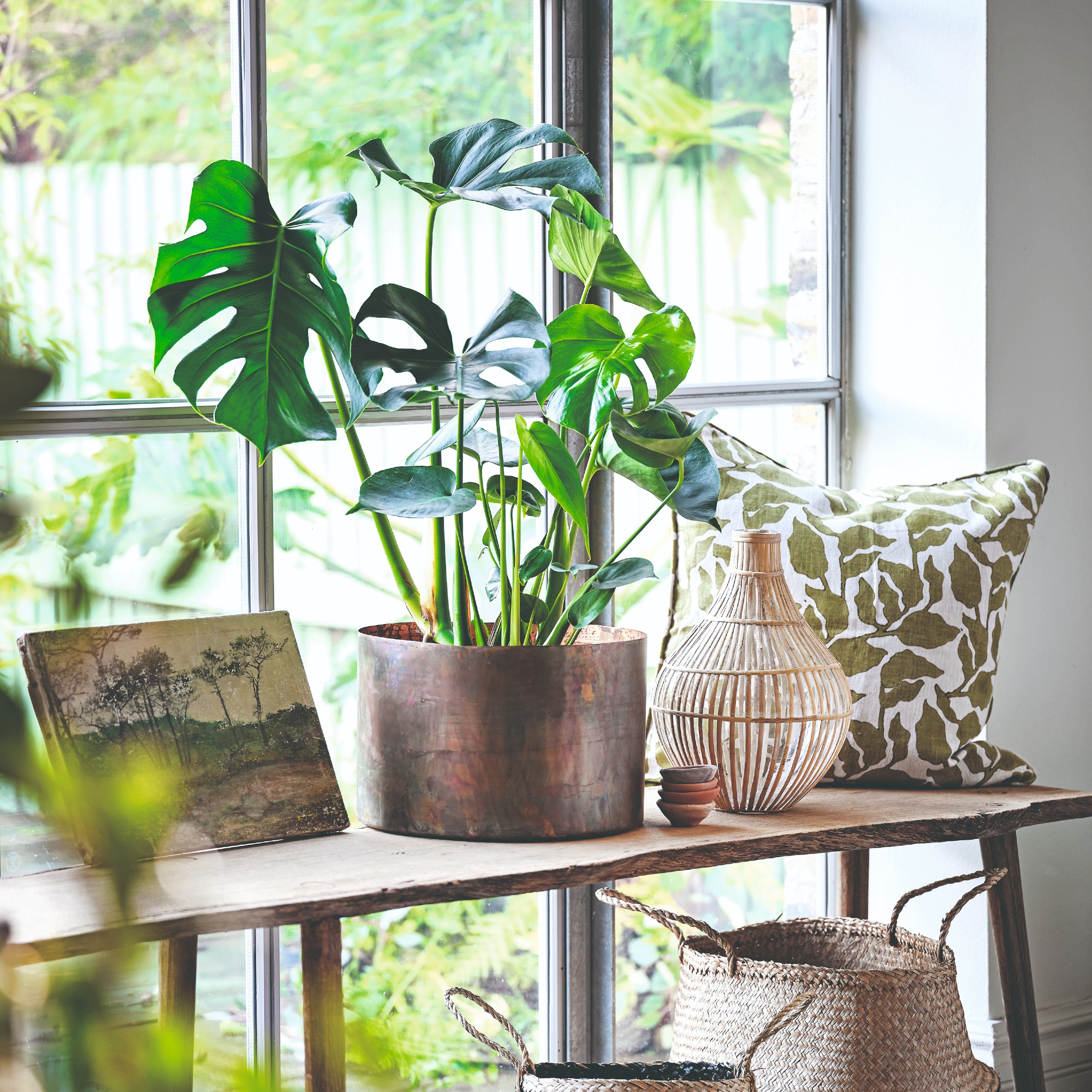 Best soil for Monstera – this is the perfect mix for healthy Swiss cheese plants
Best soil for Monstera – this is the perfect mix for healthy Swiss cheese plantsAll the ingredients you should look out for
By Sophie King
-
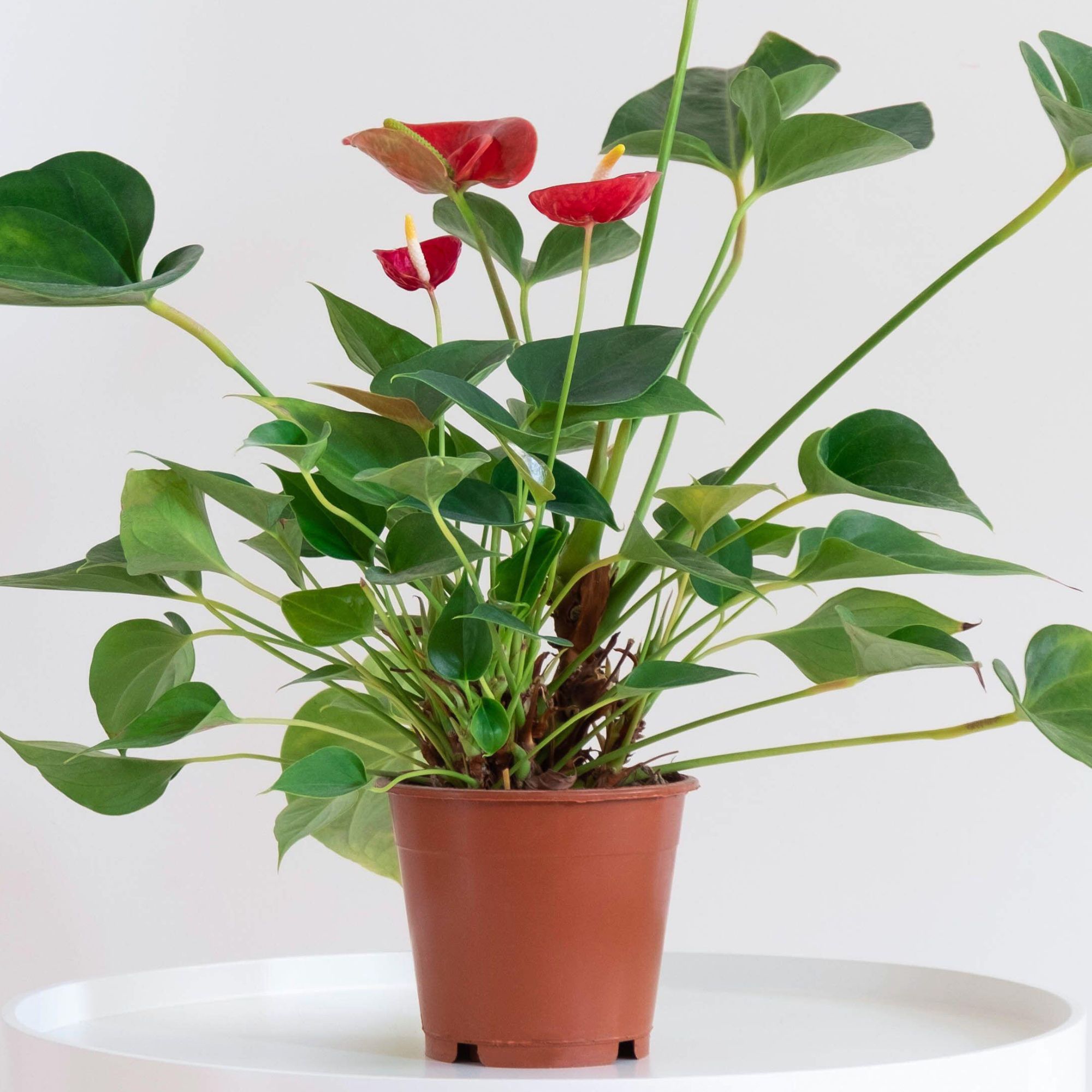 How to propagate anthurium – the three best ways to double these pretty tropical plants
How to propagate anthurium – the three best ways to double these pretty tropical plantsWhether you propagate anthurium through cuttings or separation, you'll love these ways to increase your collection
By Holly Reaney
-
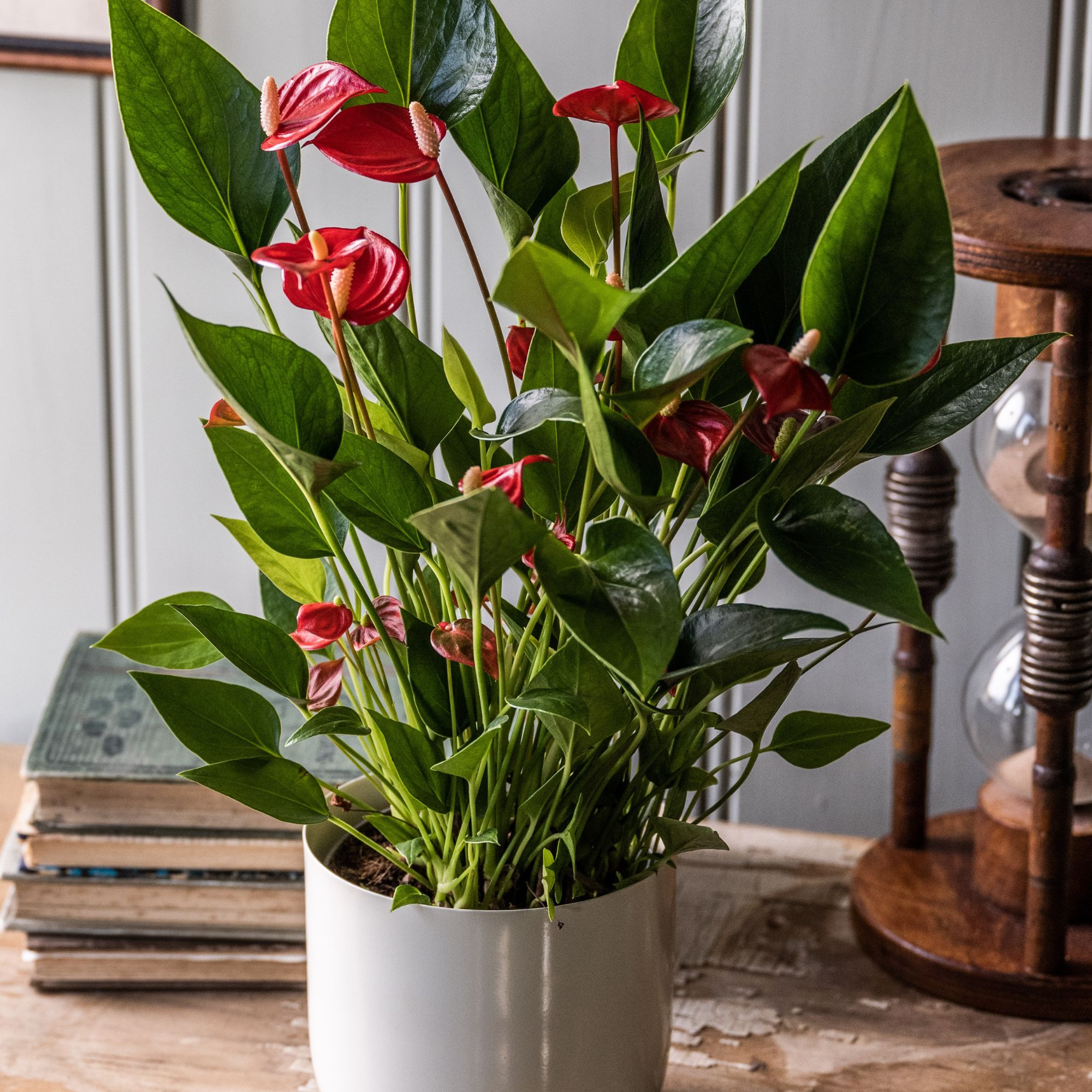 How to care for Anthurium for long-lasting vibrant and tropical colour
How to care for Anthurium for long-lasting vibrant and tropical colourWith their vibrant colours and tropical look, Anthurium andraeanum or Flamingo flowers make for an eye-catching addition to a kitchen, bathroom or conservatory
By Holly Reaney
-
 How to care for spider plants to get the most from this resilient beauty
How to care for spider plants to get the most from this resilient beautyThe retro houseplant is making a comeback – here's how it can thrive
By Holly Reaney
-
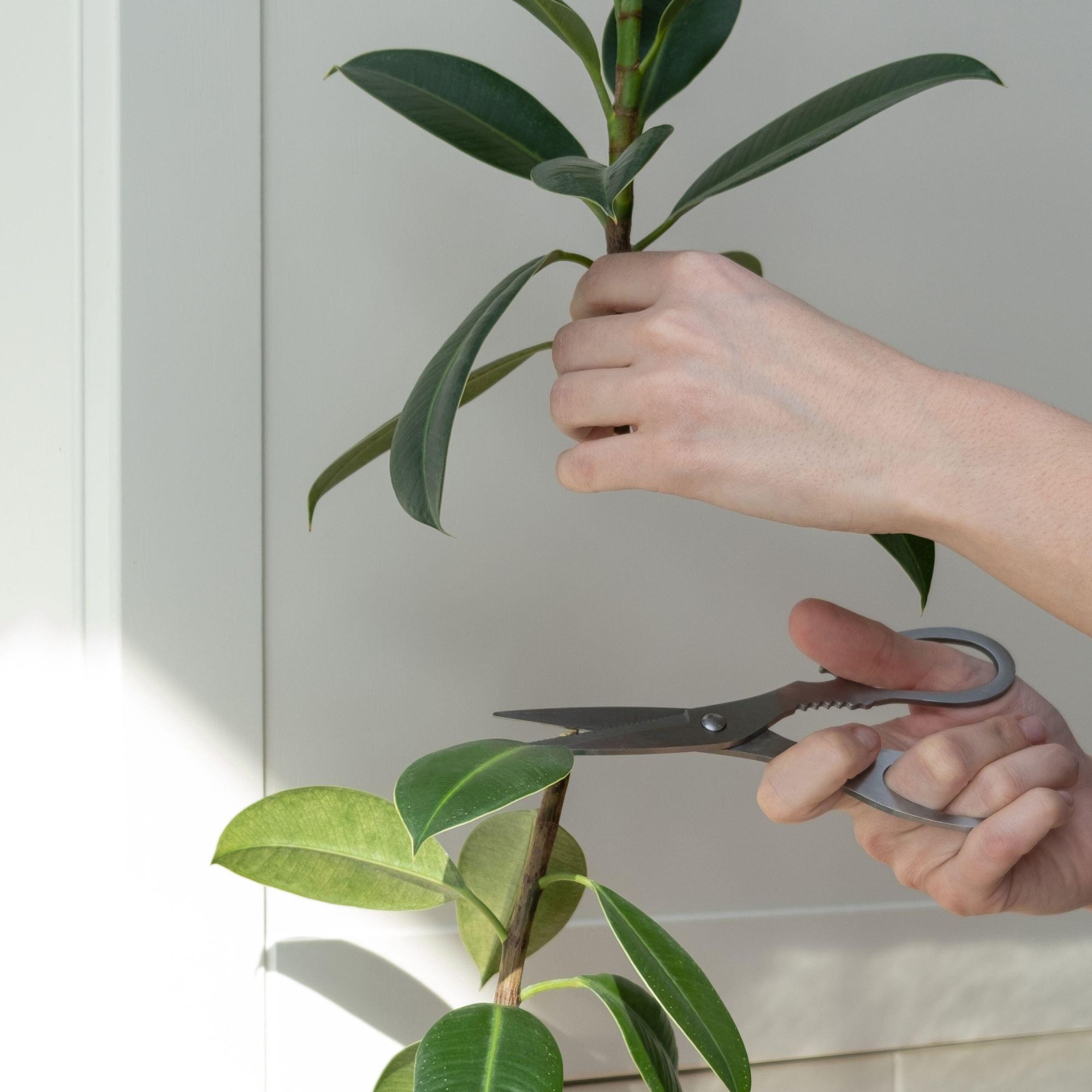 How to propagate a rubber plant - expand your houseplant collection for free
How to propagate a rubber plant - expand your houseplant collection for freeWhy have just one rubber plant when you can have loads?
By Holly Reaney
-
 How to care for a rubber plant – the almost unkillable houseplant
How to care for a rubber plant – the almost unkillable houseplantLow maintenance and fast-growing, the rubber plant is the perfect choice for beginners and ideal for making a statement in a home
By Holly Reaney
-
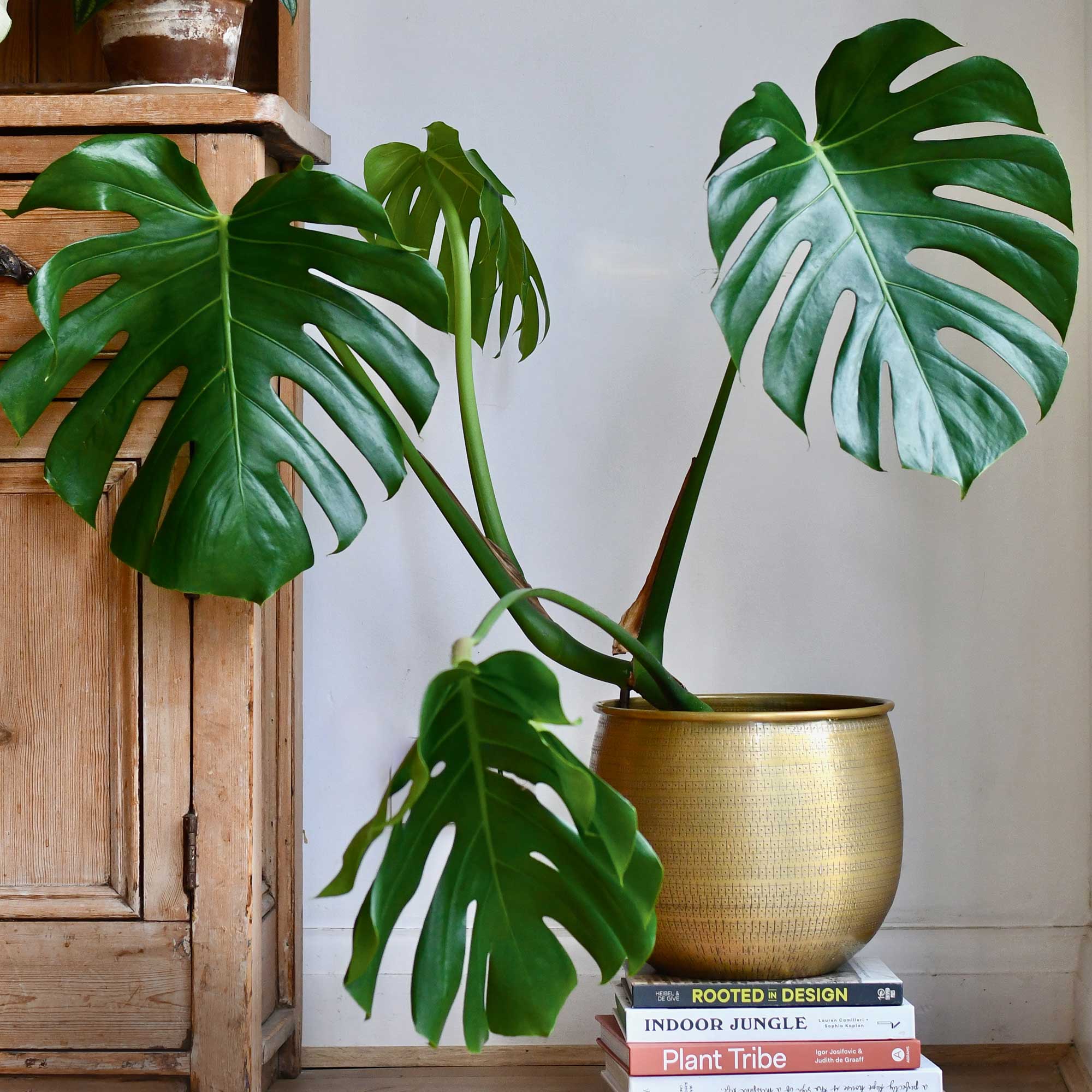 How to care for a monstera deliciosa – the gentle giant of the houseplant world
How to care for a monstera deliciosa – the gentle giant of the houseplant worldHow to care for a monstera deliciosa, including where to position, when to water and how to propagate
By Holly Reaney
-
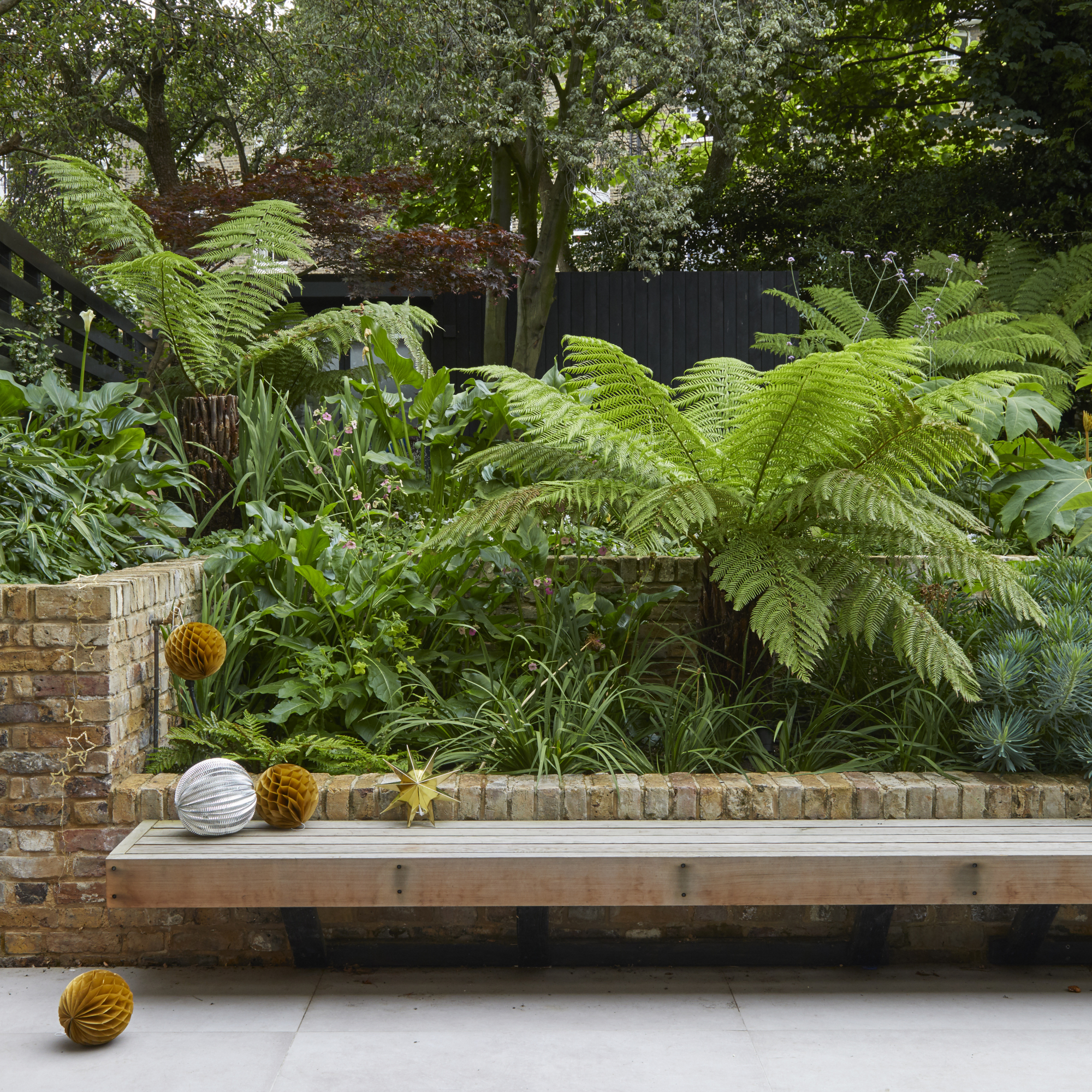 When to cut back ferns to keep them looking their best
When to cut back ferns to keep them looking their bestLearn when to cut back ferns to keep these hardy garden stalwarts in tip-top condition
By Rachel Crow